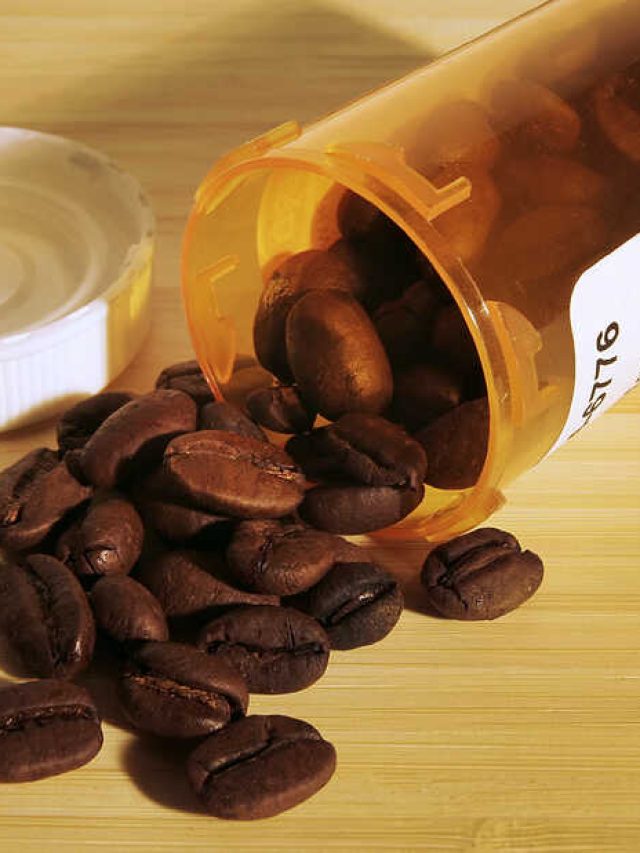Short Answer: FDA does approve coffee and states that it is not only safe but can be a great addition to a healthy diet due to the high amount of antioxidants it contains.
The FDA is mainly responsible for safeguarding and promoting public health by controlling and keeping supervision over food safety, dietary supplements tobacco products, medications and prescriptions, blood transfusions, biopharmaceuticals, medical devices, vaccines, cosmetics, animal feed, and veterinary products.
As a caffeine aficionado, you may be wondering if coffee is FDA-approved.
The FDA does regulate coffee and has approved it as a safe and healthy addition to your diet because of the high amount of antioxidants it contains. However, the FDA also recommends limiting caffeine consumption to just 400 mg a day to prevent negative side effects.
According to Dr. Mark Corey, NCA Director, coffee and tea which have naturally present caffeine in them have been ingested safely since time immemorial. The caffeine in these beverages is natural and it’s up to the consumer like you and me to adjust our intake according to our own caffeine tolerance.
And yet even after knowing the potential health benefits of coffee, concerns about caffeine and human health remain key factors in limiting coffee consumption.
According to scientists at the FDA, you can have caffeine as a part of your healthy diet.
But as we all know, too much of something is bad and that means too much caffeine may harm your health.
Therefore the FDA has set a limit of consuming no more than 400 mg of caffeine in a day – that’s about four or five cups of coffee.
Keep reading to know more about the FDA’s regulations for coffee.
Is coffee regulated by the FDA?

The FDA does regulate coffee. All the food and beverages circulated in the United States are regulated by the FDA except those that are regulated exclusively by the US Department of Agriculture (USDA).
Processors of the different kinds of coffee including regular, decaffeinated, and instant types plus the ones mentioned below require food facilities that are registered with the FDA.
- Cappuccino
- Caramel coffee
- Chocolate coffee
- Colombian ground coffee
- Decaf ground coffee
- Decaffeinated coffee
- French roast coffee
- French vanilla coffee
- Instant coffee
- Italian roast coffee
- Roast ground coffee
- Sumatra ground coffee
Does the FDA regulate caffeine?
Caffeine though as an ingredient in food, medicine, and drinks is being regulated by the US Food and Drug Administration. Their experts have declared that if used under the set limit, caffeine is safe to consume.
Do you know why the FDA doesn’t regulate caffeine at the present? The FDA proposed in 1980 to remove caffeine from soft drinks citing its psychoactive properties and the concerns it poses to one’s health.
The proposal faced severe opposition from the industry.
As a result, the FDA ended up placing a limit of 0.02% of the caffeine that can be added to carbonated beverages, or 71 mg for a 12-ounce beverage.
Furthermore, foods and beverages containing natural amounts of caffeine, such as coffee and tea, do not have any limits on caffeine content.
As we’ve talked about it earlier, only carbonated sodas have to follow the set limits on added caffeine.
New guidance by the U.S. Food and Drug Administration (FDA) that has been recently issued states that selling dietary supplements containing pure or highly concentrated caffeine in bulk quantities directly to consumers is “considered unlawful”.
This is because of the high risk that they might be accidentally consumed in excessive and potentially dangerous doses.
Products containing caffeine can be classified as either conventional foods or dietary supplements.
It is important to distinguish between them because ingredients added to each of these two are subject to different regulations.
Manufacturers of conventional food products and dietary supplements are mandated to meet the applicable regulatory requirements depending on how they’re categorized.
When was caffeine approved by FDA?
Caffeine was approved by FDA in 1958.
The number of caffeine-containing products has increased greatly since 1958 and the FDA last proposed regulatory changes for the use of caffeine in the 1980s.
Caffeine is listed as a substance that is generally safe for its intended use in beverages at levels not exceeding the set limit by the FDA.
Because of this, caffeine has been added to certain foods, beverages, dietary supplements, and medications.
Our beloved coffee and tea though are the primary sources of caffeine consumed by people all around the world.
Is there a legal limit on caffeine?

The FDA has officially declared that caffeine is safe for consumers who take up to 400mg of it in a day.
To date, the addition of caffeine in beverages and food is allowed by FDA as long as it’s listed in the ingredients panel.
But take note that products are not required to mention the quantity of caffeine that they contain.
Watch the video to know more about the caffeine limitations by the FDA.
FDA caffeine labeling requirements
Under the law and regulations of the United States, neither caffeine nor caffeine-containing products (e.g., coffee and tea) have special regulatory status concerning their labeling. This includes dietary supplements and over-the-counter (OTC) drugs too.
Carbonated drinks and other conventional foods and beverages containing added caffeine must list caffeine as an ingredient, but they do not need to mention the quantity of caffeine.
Foods and beverages that have naturally occurring caffeine in them do not need to indicate that the food contains caffeine.
For example, coffee ice cream must list coffee as one of its ingredients. It does not need to mention though that coffee as its ingredient contains caffeine.
Dietary supplements having added caffeine in them must list caffeine as an ingredient on the label, but do not need to mention the quantity of caffeine.
If caffeine is listed as part of a “proprietary blend,” then the quantity of the blend must be indicated, but not the amount of caffeine in the blend.
Apart from foods, beverages, and dietary supplements, over-the-counter (OTC) drugs having caffeine must mention the caffeine content on their labels along with warning labels. An example of a warming label we see is “The mentioned dose of this product has about as much caffeine as a cup of coffee.”
Refer to the following table to understand the labeling requirement of caffeine by the FDA:
| Category | Examples | The label must mention product contains caffeine | The label must mention caffeine quantity | Limits on caffeine quantity |
| Carbonated soda with added caffeine | Coca-Cola | Yes | No | Yes |
| Beverages and foods with naturally occurring caffeine | Coffee | No | No | No |
| Foods with added caffeine | Tea, Coffee ice- cream, Chocolate | Yes | No | No |
| Energy drinks classified as liquid dietary supplements | 5-Hour Energy | Yes | No | No |
| Over-the-counter drug | NoDoz | Yes | Yes | Yes |
To sum it all up

The Food and Drugs Administration or as we commonly refer to as the FDA is a federal agency in the US that regulates and promotes public health by keeping supervision over food safety, dietary supplements tobacco products, medications and prescriptions, blood transfusions, biopharmaceuticals, medical devices, vaccines, cosmetics, animal feed, and veterinary products.
Coffee is approved by the FDA and its experts have declared it not only safe to consume but is also a healthy drink when taken in moderation. You can read the health benefits of coffee in this article I wrote if you’re interested.
Though the FDA does not regulate caffeine, it is being regulated as an ingredient in food, medicine, and drinks.
The maximum intake limit of caffeine recommended by the FDA is 400 mg in a day for healthy adults. It doesn’t recommend caffeine to be consumed by children.
Under the law and regulations of the United States, neither caffeine nor caffeine-containing products (e.g., coffee and tea) have special regulatory status with regard to labeling. This also goes for food products or dietary supplements.
However, many organizations are not happy with the current regulatory policies of the FDA regarding caffeine-containing products. They have declared these policies as incoherent and outdated because they fail to protect consumers’ interests and they need to be modified.
They demand that all consumable products with added caffeine should be labeled quantitatively of their caffeine content to help prevent serious harm to consumers, protect children and adolescents, and enhance effective consumer use.
Other Articles
- When Does Coffee Become Unhealthy? (Important)
- Does Coffee Qualify as Water? (Let’s Find Out)
- When Does Coffee Withdrawal Start? (Facts to Know)


